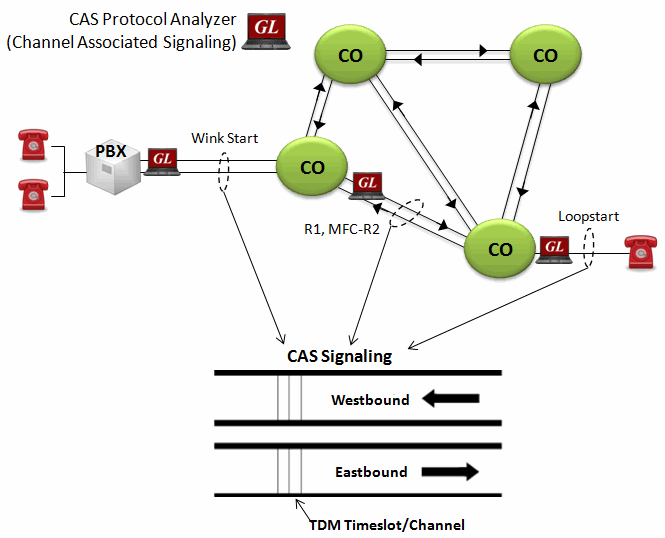GL Announces MFC-R2 Bulk Call Emulation and Analysis
Gaithersburg, Maryland, USA – November 29, 2013- GL Announces MFC-R2 Bulk Call Emulation using MAPSTM and Analysis using CAS Analyzer.

Speaking to reporters, Mr. Vijay Kulkarni CEO of the company said, “E1 Multi-Frequency Compelled R2 (MFC-R2) signaling is a Channel Associated Signaling (CAS) protocol used over E1 digital voice and signaling networks. GL's Message Automation & Protocol Simulation (MAPS™), a protocol simulation and conformance test tool that supports a variety of protocols such as SIP, MEGACO, MGCP, SS7, ISDN, and many others, also supports CAS protocols, including R1 Wink Start, Loop Start, MFC-R2, and others.
E1 MFC-R2 Signaling Emulation, as defined by the ITU Recommendations:Q.421-Q.442, can be supported by extending existing MAPS™ scripts. The Emulator can automate the CAS testing procedure and allow users to establish single/bulk CAS calls, and send/receive TDM traffic such as DTMF/MF digits, Tones, Voice, and Fax over the T1 E1 networks. In addition, GL's CAS Analyzer supports real-time monitoring and decoding of CAS signaling events over T1 E1 network.”
He added, “MAPS™ CAS MFC-R2 Emulator is a client-side application used to perform testing using CAS signaling transmission and detection of traffic over T1 E1 using scripts, and offers a complete solution for testing, troubleshooting, and maintenance of devices and networks implementing CAS protocols. It supports bulk call generation feature with multiple calls placed/answered on any or all timeslots. Ready configuration files are available, which can be customized and used to establish bulk calls on multiple timeslots. The call generation is automatically filled with multiple instances of the CAS scripts set to run on different timeslots. Each of these instances can be selected and run for multiple iterations. The quick configuration option in call generation can be used to customize multiple instances simultaneously for changing the timeslots and number of iterations.
Multiple instances of same script loaded on different timeslots. Stress/Load testing can also be done with different statistical distribution patterns. Call duration can also be randomized using different statistical distributions by properly configuring scripts and profiles.”
Mr. Kulkarni further added, “MAPS™ CAS provides tools like Script Editor and Profile Editor to customize call flow. This helps in establishing bulk calls on different timeslots carrying different traffic, call durations and other call flow parameters. Profiles are used to provide the user configured values to the fields through variables, which are replaced during the course of a call.
GL's CAS Analyzer supports real-time monitoring and decoding of CAS signaling events over T1 E1 networks. Supported standards include MFC-R2, R1, Loop Start, and many other variations.”
Main Features:
- Real-time and Offline Analysis: Users can capture and analyze frames in real-time and record all or filtered traffic into a trace file for further analysis. Any protocol field can be added to the summary view, filtering, and search features providing users more flexibility to monitor required protocol fields.
- Filtering and Search: Users can record all or filtered traffic into a trace file. Filter and search capabilities add a powerful dimension to the CAS Analyzer. These features isolate required frames from all the captured frames in real-time.
- Call Detail Record View: Important call specific parameters like Call ID details, the calling status whether the call is active or completed, calling number, called number, and so on are calculated and displayed in Call Detail View. Additionally, users are provided with the option to search a particular call detail record from the captured traces.
 Back to Press Releases Index Page
Back to Press Releases Index Page